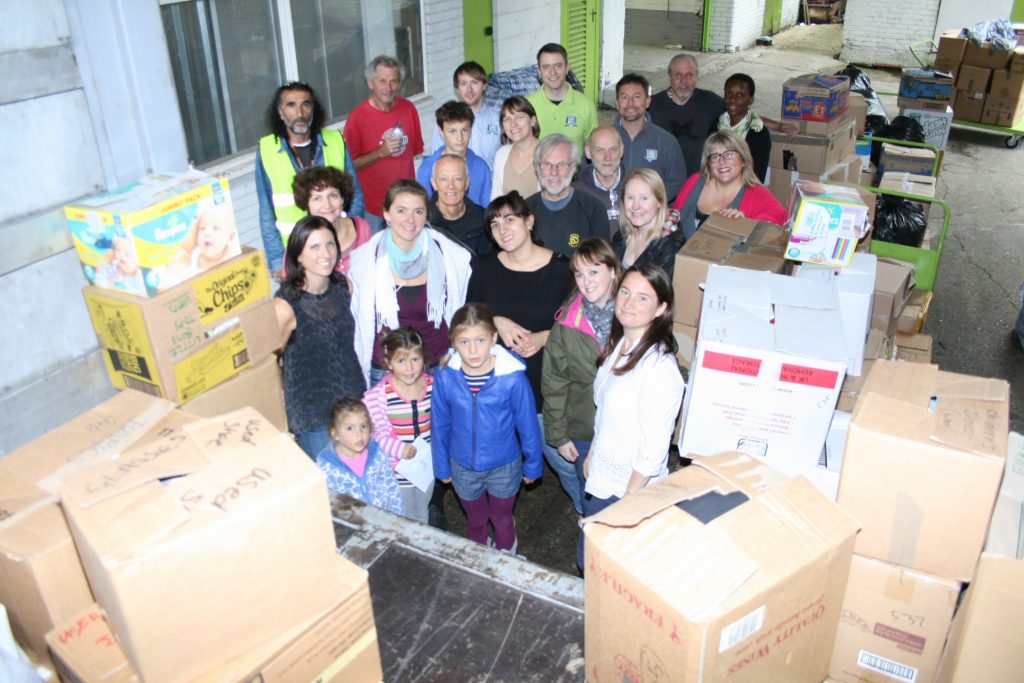“It started two Christmases ago when I heard about the awful conditions in the Syrian Refugee camps. I was suddenly aware of children in snow covered camps with nothing but flip flops and summer clothes to wear. I was shocked. I have two little children and I wondered how their mothers were coping.”
“I looked at the big pile of used clothes that I had been saving for my sister’s baby and I thought; ‘they need them more than my sister does. Wouldn’t it be great if I could collect a lorry load to send out?’ ”
Since the idea wouldn’t go away she began contacting the charities that were working with Syrian refugees, but couldn’t find any that would help with transport or receiving this type of aid. There’s enough surplus clothing in the West to clothe millions, but how to get it there? “Everyone wants to help the refugees” says Samara, “but people don’t know how.”
Then as the year went on stories from Iraq began to emerge. “People were fleeing from IS and then dying of exposure in the mountains. I was really upset about it and asked God what I could do to help…” He told me ‘start collecting’ winter clothes and shoes. So without any idea of how the clothing would get there, or who would pay for the transport, she started collecting.
Eventually Samara managed to get in touch with a logistics company who were willing to transport a lorry load of clothes, with a group working on the ground in Northern Iraq, and managed to raise more than £6,000 for the first lorry. Meanwhile, others from local churches got involved in collecting, sorting and boxing clothes, and Samara made contact with GAiN about partnering on future projects. The first lorry load went. Then a second. Within the next month, it is hoped that nine lorries will have gone to Iraq, and a container to Jordan carrying clothes collected from across the UK including areas as far reaching as Brighton, Cornwall, Wellingborough, Swansea and Scotland.
The whole operation casts a very different light on how we think of charity. While we support charities financially we might well feel alienated from the work that is actually done. Rather like in the age of the monasteries, we’re used to paying others to do good on our behalf. This isn’t a bad thing, but Samara’s story shows how ordinary people can also take direct action, and how communities can be drawn together by serving those in crisis with their own hands.
Our interview was constantly interrupted by deliveries and phone calls, and it sounds as though normal life has turned into a bustling humanitarian operation of warehouses, lorries, phone calls and people carrying boxes. “I’ve got two little children and all this fits around them,” says Samara. “It has taken over my life, but in the end I feel honoured that God has entrusted this job to me.”
By David Blower
To make a donation to this appeal, please click here.

